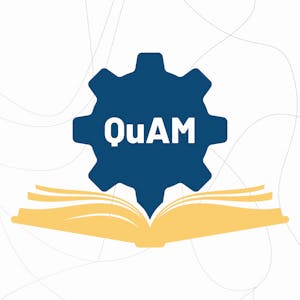This course, "Introduction to Applied Machine Learning," is designed for professionals seeking to harness the power of machine learning in various domains such as finance, medicine, engineering, and business. The comprehensive curriculum delves into problem definition, data preparation, and the application of machine learning in real-world scenarios.
Through engaging modules, participants will learn to define machine learning problems using two approaches, survey available data resources, and identify potential machine learning applications. The course equips learners with the skills to transform a business need into a machine learning application and prepare data for effective machine learning applications.
By the end of the course, participants will be adept at identifying machine learning techniques, understanding data for machine learning, and assessing the strength of machine learning projects. This course is the first in the Applied Machine Learning Specialization offered in collaboration with Coursera and the Alberta Machine Intelligence Institute.
Certificate Available ✔
Get Started / More Info
This course comprises four modules, providing a comprehensive introduction to machine learning, covering problem definition, data preparation, and real-world applications.
This module, "Introduction to Machine Learning Applications," provides a foundational understanding of machine learning, including the machine learning process, classification, regression, unsupervised learning, and reinforcement learning. Participants will also explore deep learning and semi-supervised learning, gaining valuable insights into various machine learning techniques and concepts.
"Machine Learning in the Real World" delves into the practical application of machine learning, covering topics such as generalization, features and transformations of raw data, precision agriculture, and explainability and accuracy. Participants will gain a deeper understanding of how machine learning is implemented in real-world scenarios and the considerations involved.
The "Learning Data" module focuses on essential aspects of data for machine learning, including sources of training data, ethical issues, bias in data sources, noise, and data cleaning. Participants will also explore the significance of setting up a data pipeline and understanding data protection laws.
The "Machine Learning Projects" module provides insights into the machine learning process lifecycle, problem definition, assessing the applicability of machine learning in business, and understanding different kinds of wrong outcomes. Additionally, participants will gain advanced knowledge in tasks such as deep learning for identifying metastatic breast cancer and the implications of false positives and false negatives in machine learning projects.
Prepare for the Microsoft Azure AI Fundamentals exam with this Specialization. Gain foundational knowledge and skills in AI workloads, Azure services, and exam preparation....
This course explores glass classification using decision tree and random forest classification in Julia, perfect for beginners seeking hands-on learning.
Python Optical Character Recognition using Pytorch is a guided project that provides hands-on learning in image processing, data preparation, and building/training...
Generative AI: Foundation Models and Platforms is an essential course for enthusiasts and practitioners, delving into core concepts, foundation models, pre-trained...